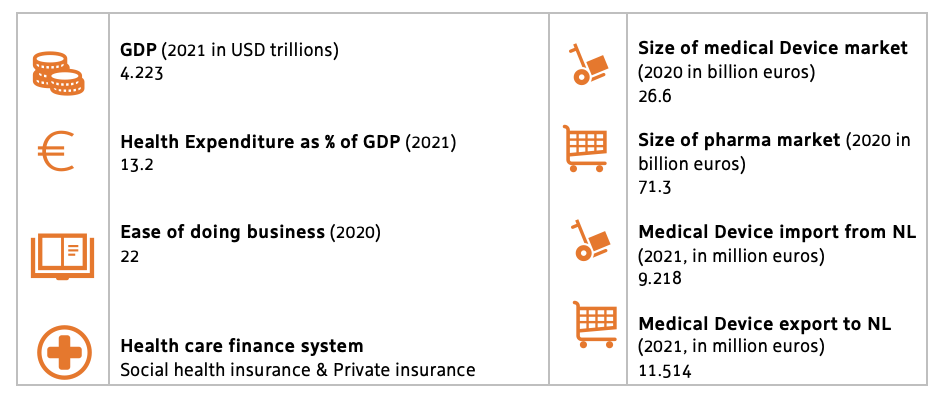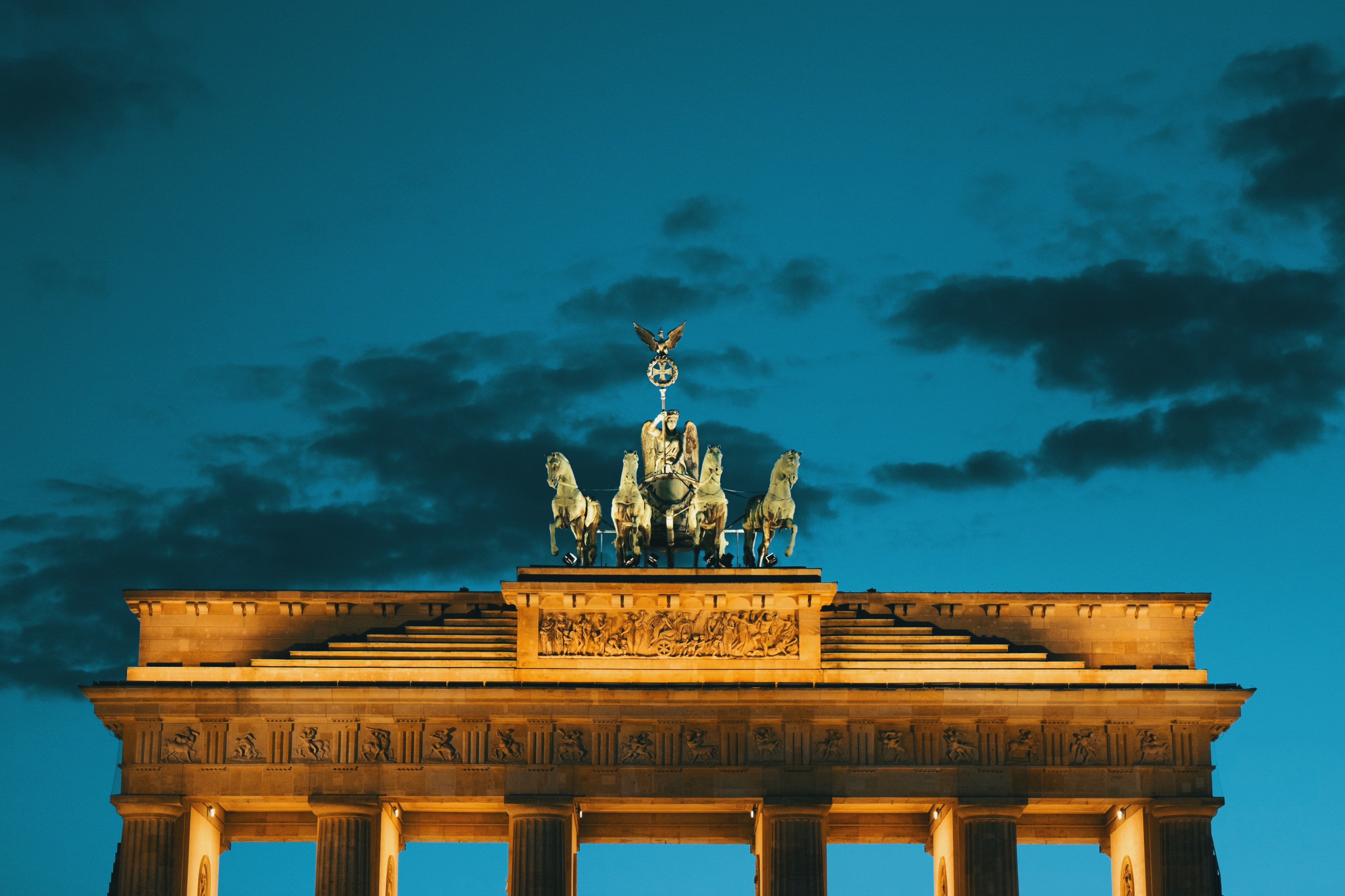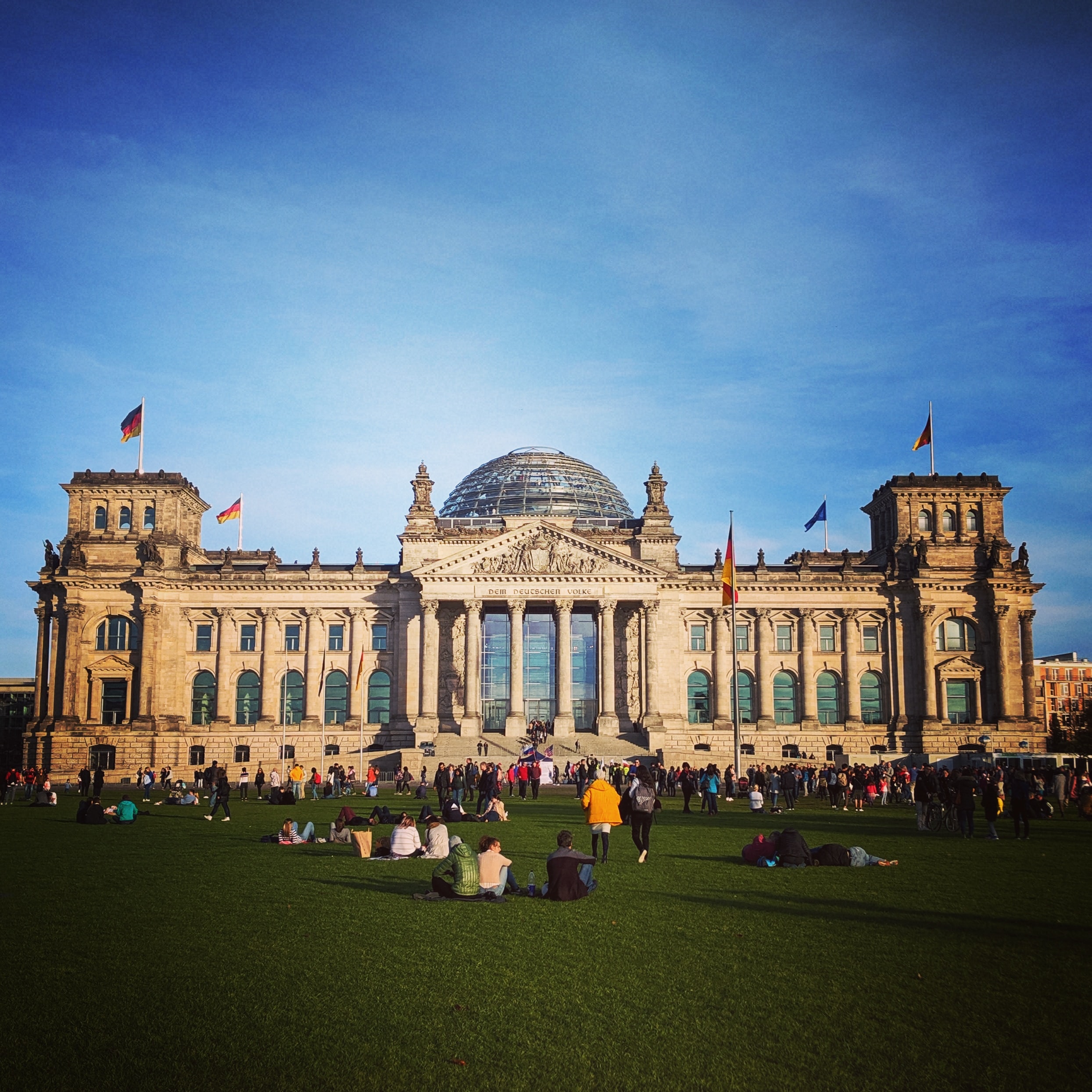Germany is the largest trade partner of the Netherlands: over a fifth of the total Dutch exports are shipped to Germany. In the Life Sciences and Health (LSH) sector, Germany and the Netherlands are also close trading partners. From the Netherlands there is a strong interest in providing LSH solutions in the field of e-Health, medical technology product development & high tech and biopharmaceutical developments to its eastern neighbor. This is reflected by the large number of SMEs participating in trade missions during the last years, the PIB on e-Health and a large number of Dutch-German contracts and joint projects. During visits from German parties to the Netherlands, visitors perceived the Dutch LSH sector as creative and innovative which results in projects and an open mind to find new ways for cooperation.

Germany has a highly developed LSH-sector which forms the biggest LSH-market in Europe. From the perspective of the Netherlands the following market trends are of interest:
Trade
- Aging society: Germany has the biggest senior (65+ years old) population in Europe which is growing fast. The German elderly care infrastructure has insufficient capacity to continue delivering quality services. In order to increase the capacity of the German health system, the government has increased investments in the building of nursing and residential care. Furthermore, multiple federal states, most notably Baden-Württemberg are experimenting with telemedicine to alleviate pressures on hospitals and nursing homes.
- Affordable and accessible quality healthcare: re-designing care, more care delivery at home, telehealth and efficiency improvements (digitalisation).
- New technology or transforming healthcare ecosystem: contribute to better care and/or better quality for the patient (e.g. AI, data-driven healthcare, outcome-based financing) mainly South-Germany.
Research and innovation
Compared to the middle of the last century, Germans have on average gained a decade of life expectancy. At the same time, both new and known diseases demand improved concepts for prevention, diagnostics and therapy. This is why Germany relies on high-performance health research, international research partnerships, and the use of digital innovations in medicine and healthcare. Both Germany and the Netherlands follow a mission-based innovation policy, providing technological solutions for societal challenges. Health and care is a main pillar in Germany’s High Tech Strategy 2025 as well as in the Dutch Mission-driven Topsector and Innovation policy. In addition, the German Government is realigning medical research with the Health Research Framework Programme. In this programme, focus is being shifted to people. Digitisation and personalisation are used as keys to progress.
Key enabling technologies like AI, photonics and biotech are being promoted to open up new and disruptive innovation potential. Germany is an important research and innovation partner for the Netherlands in the field of Life Sciences & Health. This is clearly reflected in the number of R&D cooperation projects in, among others, Horizon 2020 (now Horizon Europe) and EUREKA, in which Dutch and German organisations cooperate. To strengthen the public-private innovation cooperation, the German-Dutch Innovation and Technology Pact was signed on January 21, 2021. The aim of the pact is (1) to position the Netherlands as an interesting innovation cooperation partner for Germany and (2) to jointly advance innovations with Germany and to conduct a structural strategic dialogue about this, also in relation to the European context. Themes that are central to the pact include health and key-enabling technologies.
We do see a significant amount of international R&D cooperation projects between the Netherlands and Germany with applications in the health and care market. For instance in EUREKA cluster projects or the EUROSTARS programme. In EUROSTARS alone, we have seen around 94 SME R&D project collaborations since 2008. Germany is #1 of SME R&D partner countries (followed by Switzerland, UK, Denmark and Sweden). EUROSTARS is an important instrument for SME R&D collaborations with German partners. This programme makes it possible to apply for funding for bilateral or multilateral research and innovation projects.
Invest
NFIA / Invest in Holland network will investigate the potential of proactive acquisition of German companies that will contribute to the goal of the Netherlands in finding solutions that deliver better, affordable and sustainable healthcare and strengthen our Life Sciences & health ecosystems.
When looking at the FDI trends Germany houses many large medical technology clusters with interest to invest in the Netherlands. A premier example is the Health Capital Berlin Brandenburg who has invested 1 billion euro in Twente.
In Germany the Netherland Foreign Investment Agency (NFIA) has one location in Munich. This office provide the first point of contact to support and promote investment opportunities for German companies looking to connect with the Netherlands LSH eco-system.
The Invest in Holland LSH team is a collaborative team of the NFIA, regional development agencies, several large cities and Holland International Distribution Council.
Regional priorities
Within Germany, Baden Württemberg and Bayern are the most interesting from a medical technology and product development point of view. Its vicinity to the Dutch border and large presence of healthcare and pharma industry makes North Rhine Westfalia an important strategic partner. In term of E-health, Berlin (with the presence of all relevant health authorities, large hospitals, R&D hubs), Hamburg and Southern Germany are important areas. Based on previous activities, the regions of Rhineland Palatinate and Saarland are of importance in the fields of E-health and elderly care. The Heidelberg/Mannheim region is known for its excellent cancer research. The eastern German region of Saxony has a lot of research institutes in the field of regenerative medicine and disruptive cancer research.
There are strong research clusters throughout Germany. The Federal Ministry for Economic Affairs and Energy launched „go-cluster” – a cluster excellence programme combining the most efficient national cluster management organisations. There are 25 MedTech go-clusters, 12 of which are in Bavaria and Baden-Württemberg. Other strong regions are Berlin-Brandenburg, Saxony and Hamburg.
Most prominent NL valuechains
1. The Digital Transformation of Health and Care: e-Health has been an area where Germany has lagged behind in the recent decades. In the last years however, rising costs of healthcare, a lack of healthcare professionals, public pressure, new leaderships and laws have led to an opening up of the eHealth market and its uptake by healthcare providers and patients. This provides a great opportunity for the Dutch eHealth sector to market already existing, tried-and-tested eHealth tools and applications in Germany. Demand is not necessarily regionally focused as the potential and need is German-wide. Nevertheless, more rural areas with lower access to healthcare and areas where the shortage of healthcare professionals is greatest could prove to be the lowest hanging fruit. Rhineland-Palatine, Saarland, Lower Saxony, Mecklenburg-Vorpommern and parts of Southern Germany could be such regions. What has to be taken into account is the German rigor when it comes to privacy and data-security laws – these are strict and followed closely. Furthermore, though Dutch companies bring a host of validated eHealth solutions, it will often be mentioned that those solutions have not been in use in Germany and are therefore their efficacy has not been tested in context. Activities focused on e-Health and the overlapping field of elderly care have proven fruitful in expanding the network and have led to initial business successes.
2. Accessible Medical Technology for Sustainable Health and Care: With an annual turnover of € 4.7 billion, the Dutch medtech sector is an important economic cluster. It is an innovative sector with a strong emphasis on research and development. The Netherlands ranks sixth in the world in the number of medtech patents. In addition to several large companies (with Philips as the best known), the sector includes sector includes several hundred SMEs. Within Europe, Germany is in first, the Netherlands in second place when it comes to the export of medical technology. Developments in the field of artificial intelligence are important for personalised medical technology, about which German and Dutch parties are already in exchange. Especially the southern German regions of Baden-Württemberg (accounting for 25% of the total German medtech turnover) and Bavaria are very strong with big players like Siemens or Boehringer Ingelheim, but also over hundreds of SMEs, “hidden champions”.
3. Product Development & High Tech: Product development is an example of value chain with a lot of expected business impact. Even though Germany has the world’s second biggest medical device industry, the interest in Dutch product developers is moderate. Dutch contract manufacturers indicate regulatory barriers are the cause of this lower level of interest in Germany. Dutch contract researchers on the other hand have successfully set-up projects.
4. Biopharma: This value chain contains among other things the development of drugs and vaccines, organ-on-a-chip, regenerative medicine, immune-oncology and stem cell therapies. RegMedXB has received 56 million euros of subsidy from the National Growth Fund and will soon realise a pilot factory in The Netherlands. With Leiden Bio Science Park and the Eindhoven region, the Netherlands has a lot to offer in the field of biopharma. Germany has a large biopharmaceutical research ecosystem, which became well known during the Covid-pandemics when BioNTech developed the first mRNA vaccine. Germany has declared a National Decade Against Cancer. Government, science, business, society and stakeholders in the health system will be working together to advance prevention, early detection, diagnosis and treatment of cancer. Here lie opportunities for strategic partnerships with Dutch organisations like the Oncode Institute.
Overview milestones & flagships
Collective Activities to Germany
2016
- Economic Mission to Southern Germany led by Minister Ploumen parallel to the working visit of the Royal Couple, including a visit to Siemens Healthcare and Medical Valley Erlangen. A MoU between Brainport Industries and Medical Valley EMN e.V. was signed.
- Collective Holland Pavilion at trade fair MEDICA in Düsseldorf
- Collective Holland Pavilion at trade fair MedtechLIVE by Medizintechnik NL
2017
- Collective visit to eHealth trade fair ConhIT in Berlin
- Dutch Digital Health Night at the Netherlands Embassy in Berlin
- Incoming visit German stakeholders in eHealth (with visit to World of Health Care)
- Collective Holland Pavilion at Tradefair MEDICA in Düsseldorf
- Collective Holland Pavilion at trade fair MedtechLIVE by Medizintechnik NL
- Personalised Medicine mission to Southern Germany led by Innovation Quarter
2018
- Incoming German Delegation as part of the Health~Holland Visitors Programme
- Economic Mission to Rhineland Palatinate and Saarland led by Deputy Prime-Minister De Jonge and Minister Kaag parallel to the working visit of the Royal Couple with focus on ehealth and elderly care
- Collective Holland Pavilion at trade fair MEDICA in Düsseldorf
- Collective Holland Pavilion at trade fair MedtechLIVE by Medizintechnik NL
- Collective Holland Pavilion at Medical Devices Meetings by WTC Twente
- Collective visit to ehealth trade fair ConhIT in Berlin
- Dutch Digital Health Night at the Netherlands Embassy in Berlin
2019
- Market study German ehealth sector: barriers and opportunities
- Collective visit to ehealth trade fair DMEA in Berlin
- Dutch Digital Health Night at the Netherlands Embassy in Berlin
- Trade mission to Southern Germany focused on hospitals
- Incoming German Delegation as part of the Health~Holland Visitors Programme
- Incoming German Delegation with focus on ehealth and elderly care as follow up of the economic visit in 2018
- Collective Holland Pavilion at trade fair MEDICA in Düsseldorf
- Collective Holland Pavilion at trade fair MedtechLIVE by Medizintechnik NL and finalisation of the PIB programme (2015-2019)
2020
- Digital NL Lounge at the eHealth trade fair DMEA
- Collective NL Pavilion at trade fair MEDICA in Düsseldorf (hybrid due to Covid-19 outbreak)
- A series of three webinars in the field of ehealth by NBSO Stuttgart in cooperation with Trade & Innovate NL
2021
- Economic Mission to Berlin parallel to the State Visit of the Royal Couple to Berlin – postponed due to Covid-19 pandemic
- LSH-related activities during State visit of the Royal couple to Berlin
- AI & Medtech and Data Sharing expert sessions, part of digital AI mission
- Launch of PIB eHealth
- NL Lounge at the eHealth trade fair DMEA
- Collective NL Pavilion at trade fair MEDICA in Düsseldorf
- Digital Event with Start-up/Scale-up by the Netherlands Business Support Office (NBSO) in Stuttgart
- Follow-up ehealth webinar series by NBSO Stuttgart and Trade & Innovate NL
- Digital Event: women in digital health by NBSO Stuttgart
2022
- Masterclass Duitsland: Medische Hulpmiddelen by NBSO Stuttgart
- Outgoing mission to Baden Wurttemberg (part of PIB e-Health)
- PIB eHealth Germany
- Pavilion at the trade fair MedtecLIVE by Medizintechnik NL
- NL Lounge at the Altenpflege trade fair in Essen
- NL Lounge at the DMEA trade fair in Berlin (part of PIB e-Health)
- Collective NL Pavilion at the trade fair MEDICA in Düsseldorf
- Health~Holland Europe Day
2023
- ·Pavilion at the trade fair MedtecLIVE in Nürnberg by Medizintechnik NL
- NL Lounge at the DMEA trade fair in Berlin
- Visitors programme DMEA trade fair & Pitch event in Berlin by ROM Utrecht
- Incoming German hospital delegation
- Collective NL Pavilion at the trade fair MEDICA in Düsseldorf
The way forward
For the Dutch Life Sciences & Health sector Germany is a high priority country. When it comes to the future LSH collaboration between the Netherlands and Germany we have set three ambitions. Given the successful collaborations and the growing interest in the field of eHealth and medical technology it is recommended to keep eHealth and medtech as a structural collaboration area in the bilateral LSH activities and organise corresponding activities, specifically in Berlin/Hamburg the South, and South-West Germany. There is still a lot of growth potential within the field of product development and biopharmaceutical developments which has to be further explored by initiating activities that facilitate making new connections with stakeholders in the border area and the South.
In the course of 2023 a Roadmap Multiannual Integral Program will be developed, coordinated by RVO in close cooperation with the public and private sector, the Dutch economic network in Germany, and the Ministries of Foreign Affairs and Economic Affairs and Climate Policy. This Roadmap builds on a number of ongoing initiatives in the Germany and provides for an integrated approach for the coming years. It aims to strengthen the Dutch Life Sciences & Health (LSH) sector through coordinated cooperation between industry, knowledge institutions, economic network Germany and Dutch government, with less fragmentation and more focus. This roadmap integrates programming and activities on trade, foreign investments into the Netherlands and collaboration in R&D and innovation.
(Preferred) actions
- Activities: Organise tailor-made events aimed at finding distributors/agents, funding opportunities and partners for Dutch companies.
- Activities: Improve understanding and access to reimbursement in Germany for Dutch eHealth/telemedicine solutions through G2G via PIB eHealth. Lower barriers currently experienced by Dutch companies.
- Activities: Improve the position of the Netherlands as an innovative, high-quality and trustworthy partner via strategic communication (to reach KOL’s, healthcare management, and clusters/authorities), thematic missions (inbound and outbound), summits and targeted round tables.
- Activities: The Dutch target group of medical devices is too small to compete with German multinationals. PIB desired for joint brand positioning.
- Activities: Collective NL Pavilion at trade fair MEDICA in Düsseldorf and DMEA in Berlin
- Cooperation between Dutch stakeholders: strengthening the alignment, cooperation and goals of Dutch stakeholders who consider the German healthcare market as a priority.
- Innovate: Stimulate R&D cooperation between the Netherlands and Germany through innovation missions
- Innovate: Build successful Dutch-German consortia for bilateral and European public-private innovation programmes.
- Invest: Prepare and publish propositions and articles linked to market drivers and Netherlands strengths; Present to German companies in NL; Contact German medical clusters; make target list of German companies and approach with tailored proposition; connect to mentors in Germany & link into topsector LSH strategy for Germany, NFIA participation in some selected LSH tradeshows in Germany.




